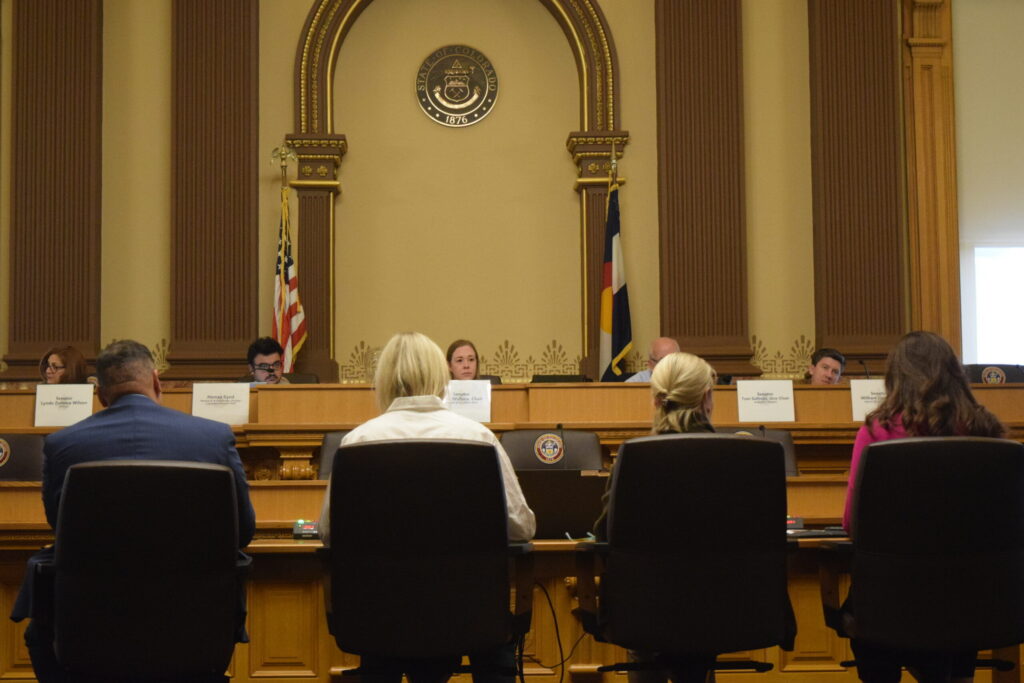OUT WEST ROUNDUP: Polygamous town picks outsider as police chief

Utah
Polygamous town under scrutiny picks outsider as chief
SALT LAKE CITY – A polygamous community on the Utah-Arizona border has hired an outsider as its new police chief, selecting a retired Salt Lake City area police officer with no ties to the fundamentalist Mormon group that controlled the town for a century until federal government crackdowns.
The appointment of Mark Askerlund as town marshal is designed to help bring fairness to a department that a jury found had discriminated against people who aren’t members of the dominant religious sect.
The selection was approved by the town councils after it was made by independent monitors appointed by the U.S. government to supervise the towns for 10 years as a result of the religious discrimination case.
The hiring of the 63-year-old Askerlund is the latest move designed to pull the town into modern society and away from the cloistered religious philosophy it had for decades. The new mayor and town council of Hildale are not members of the Fundamentalist Church of Jesus Christ of Latter Day Saints, or FLDS.
The previous chief, Jerry Darger, was fired in March. He is a member of FLDS, a radical offshoot of mainstream Mormonism with members who believe polygamy brings exaltation in heaven.
Polygamy is a legacy of the early teachings of The Church of Jesus Christ of Latter-day Saints, but the mainstream church abandoned the practice in 1890 and now prohibits it.
The community on the Utah-Arizona border has a population of 8,000 people and is nestled against picturesque red rock cliffs. Its demographics are rapidly shifting as former sect members seem to outnumber FLDS followers.
Idaho
Officials: Efforts failing to save western sagebrush land
BOISE – Public lands managers are losing a battle against a devastating combination of invasive plant species and wildfires in the vast sagebrush habitats in the western United States that support cattle ranching and recreation and are home to an imperiled bird, officials said.
The Western Association of Fish & Wildlife Agencies in a report released this month says invasive plants on nearly 160,000 square miles of public and private lands have reached enormous levels and are spreading.
That could mean more giant rangeland wildfires that in recent decades destroyed vast areas of sagebrush country that support some 350 species of wildlife, including imperiled sage grouse.
The top problem identified in the report is the limited ability at all levels of government to prevent invasive plants such as fire-prone cheatgrass from spreading and displacing native plants.
“There is widespread recognition that invasive annual grasses and wildland fire are the most crucial threats to the sagebrush ecosystem, yet invasive annual grass management is not funded at a level to be effective in breaking the invasive annual grass/fire cycle,” the report said.
The report is the second requested by the U.S. Fish and Wildlife Service and U.S. Bureau of Land Management. A 2013 report came out at a time when federal agencies were trying to identify gaps in a strategy to avoid listing greater sage grouse as a protected species under the Endangered Species Act.
In 2015, the federal government declined to list sage grouse but imposed land-use restrictions, leading to multiple lawsuits.
Nebraska
Keystone XL developer showers Nebraska with campaign cash
LINCOLN, Nebraska – The developer of the Keystone XL pipeline is showering Nebraska public officials with campaign cash as it fights for regulatory approval in a state that is one of the last lines of resistance for the $8 billion project.
A political action committee for TransCanada Inc. has donated more than $65,000 to campaigns within the last year, mostly to Republican state lawmakers, the Nebraska GOP and Gov. Pete Ricketts, according to an Associated Press review of campaign disclosure records.
Pipeline opponents say the company’s contributions show it’s trying to exert influence over the state’s top elected officials at the expense of landowners who don’t want the pipeline running through their property.
Within the past year, TransCanada has given $25,000 to Ricketts’ re-election campaign, $15,000 to the Nebraska Republican Party and $25,500 to state lawmakers, according to filings with the Nebraska Accountability and Disclosure Commission.
Most of the donations were made last year, before a state regulatory commission narrowly approved the project. The Nebraska Public Service Commission voted 3-2 in favor of the pipeline in November, but its decision is mired in a pending lawsuit before the state Supreme Court.
The 1,179-mile pipeline would transport up to 830,000 barrels a day of Canadian crude through Montana and South Dakota to Nebraska, where it would connect with lines to carry oil to Gulf Coast refineries.
Wyoming
Cheyenne cops’ social media garners attention for use of humor, candor
CHEYENNE – Darth Vader, 911 calls, illustrations and an Elf on the Shelf – that’s part of the picture of public engagement at the Cheyenne Police Department and a social media strategy that has garnered attention from people across the country.
Since Chief Brian Kozak made it a department goal in 2017 to boost CPD’s social media presence, Public Information Officer Kevin Malatesta has gotten creative, posting videos about speeding featuring characters from “Star Wars,” livestreaming budget hearings and other public events, and asking for help looking for possible suspects.
And as of last week, CPD’s Facebook page had more than 26,600 “likes” and more than 27,600 followers.
CPD’s humor has garnered the attention of several news outlets, most frequently 9News in Denver, which recently made its third post applauding Malatesta’s “comedic genius.”
They’ve relayed posts making fun of fuzzy surveillance videos, poking fun at odd crimes and asking the public to “tag your favorite drug dealer to the post!”
Mayor Marian Orr is also a fan.
“My favorite (post) was the Darth Vader speeding,” she said. “With my having campaigned on reducing speeding, I found that one so incredibly clever.”
Despite the use of humor, Malatesta said perhaps the most important part of the social media use is public notification.
Montana
Court: more study needed on Yellowstone-area gold mining
BILLINGS, Montana – A gold exploration proposal just north of Yellowstone National Park has suffered a significant setback with a court ruling released last week that faulted Montana officials for understating mining’s potential harm to land, water and wildlife.
The ruling from a state district judge means the Montana Department of Environmental Quality would have to conduct a lengthy environmental review before Lucky Minerals can proceed.
The Canadian company received approval last year to begin exploration work at 23 locations in Emigrant Gulch, a picturesque area of steep mountains and dense forest in southcentral Montana’s Paradise Valley.
Environmental groups sued over the project last year on behalf of local residents, who are concerned mining could reduce tourism and pollute the nearby Yellowstone River.
The court agreed with the environmentalists’ assertion that state officials gave too much deference to the company in their consideration of the project and ignored evidence that water supplies could be damaged.
The agency also should have looked more closely at the project’s effects on grizzly bears and wolverines and considered the broader implications if Lucky Minerals expands onto federal lands, the judge said.
An attorney for the groups behind the lawsuit – the Greater Yellowstone Coalition and Park County Environmental Council – said the ruling validates worries about mining.
“Industrializing these special landscapes is no small matter and would cause significant harm to the value these lands provides for Park County’s human and wildlife inhabitants,” said attorney Jenny Harbine.














